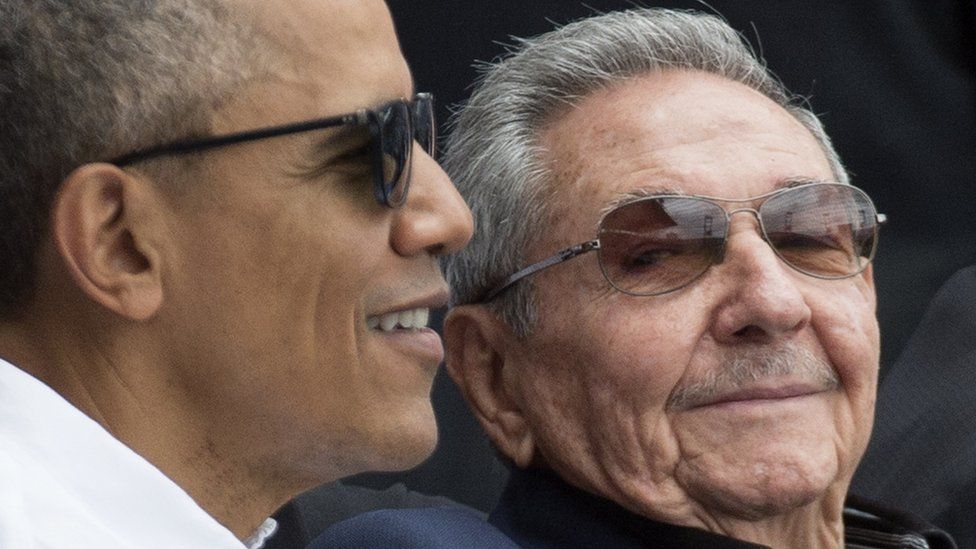Raúl Castro says he is resigning as Cuban Communist Party leader, ending his family's six decades in power.
Mr Castro, 89, told a party congress that he is handing over the leadership to a younger generation "full of passion and anti-imperialist spirit".
His successor will be voted in at the end of the four-day congress.
The move, which was expected, ends the era of formal leadership by him and his brother Fidel Castro, which began with the 1959 revolution.
"I believe fervently in the strength and exemplary nature and comprehension of my compatriots," he told party delegates in Havana on Friday.
While the entire island knew this moment was coming, it was no less historic or symbolic when it arrived: Cuba will be officially governed by someone other than a Castro for the first time since 1959.
The reality is that, at least in the short term, little will change.
The man who took over from Raúl Castro as president, Miguel Díaz-Canel, may well succeed him now as the party's first secretary too. It seems likely he will be forced to take further steps to liberalise Cuba's centrally controlled economy. The island is currently in the grip of its worst economic crisis since the period immediately following the end of the Cold War. As a result, private farmers were recently permitted to sell beef and dairy products - goods previously under the sole control of the state.
Cuba under Raúl
As leader, Raúl Castro maintained the communists' one-party grip on power.
He oversaw an improvement in relations with United States between 2014 and 2016, including historic talks with President Barack Obama in 2016.
But tensions worsened under Donald Trump, who reinforced sanctions.
Current US President Joe Biden has vowed to relax some of Trump's sanctions, although the White House said on Friday a shift in Cuban policy was not one of his top priorities.
At the congress on Friday, Raúl Castro said his country was willing to "develop respectful dialogue" with the United States but it would not accept having to make "concessions" regarding its "foreign policy and ideals".
https://www.bbc.com/news/world-latin-america-56780903

